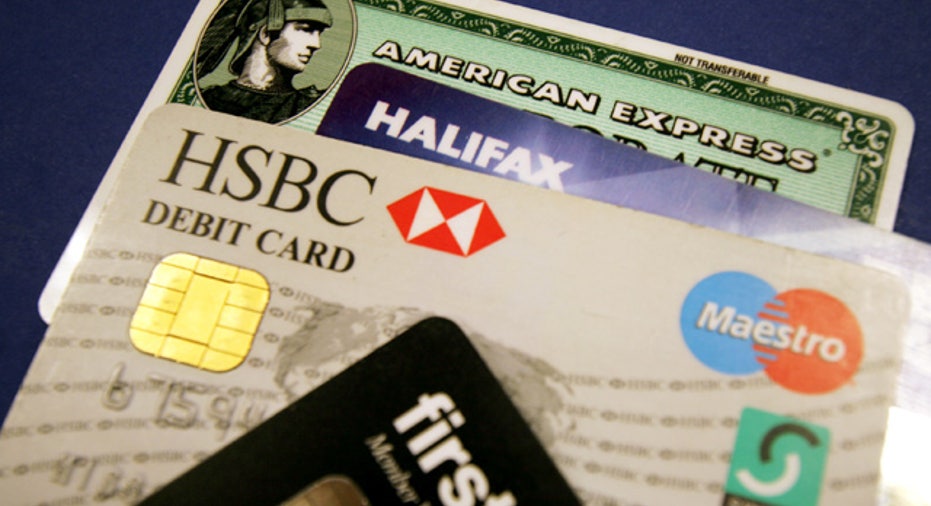Take 20% APR and Call Me in the Morning

Patrice Schultz of Gulf Port, Miss., planned to undergo major dental work this spring when her dentist's office asked about her credit.
"I said it was fine," she recalls. "The next thing I knew I had a credit card in the mail with a $5,000 balance on it."
Schultz had assumed the dentist's office asked about her credit to set up a payment plan, and she doesn't recall signing a credit card application. Nevertheless she began making payments on a GE Money CareCredit card at 14.9% interest, even though not all the dental work has been completed. She trusts her dentist, but says, "I should have asked better questions when all this took place."
Such scenarios are raising concerns about the promotion of medical credit cards. Patients use the accounts to charge out-of-pocket medical expenses that aren't covered by their health insurance plans, and they can sign up for them in their doctors' offices.
Convenient? Sure, but consumer advocates worry the cards will lead patients into debt they can't afford.
Putting medical bills out of reach
"They may be good for people who have the resources to pay their bills," says Mark Rukavina, executive director of The Access Project, a nonprofit health care advocacy group in Boston. "But for people who are strapped, it may make medical bills even more out of reach."
Consumers charge less than 20%, or $45 billion, of their out-of-pocket health care expenses on credit cards, according to a McKinsey & Co. 2007 report. But with the right business models, the firm has predicted that credit card spending on health care could reach $150 billion by 2015.
Big lenders, such as JP Morgan Chase, Citigroup and GE Money, now pitch medical credit cards or credit lines to consumers as a way to spread out payments and keep health care expenses separate from other spending. By making the cards available to patients, doctors and dentists can focus on their medical practices rather than collections. They also can eliminate the risk of financing patient payments and get paid for their services within two to three business days, the Citi Health Card website says. The card features a low merchant fee compared to other patient financing options.
Mounting complaints
A growing number of complaints about medical credit cards prompted then-New York Attorney General Andrew Cuomo to investigate the industry in August 2010.
Some consumers reported their health care providers told them the credit cards had 0% interest, but once the no-interest promotional periods ended they were charged interest of 25% or more retroactively if they hadn't paid off the balances. Others complained they were charged upfront for services they never received and ran into roadblocks when they tried to get refunds.
In addition, his office found that some health care providers pressured consumers into using GE Money's CareCredit, which paid kickbacks in the form of rebates on merchant fees to doctors and other providers, based on how much was charged on the cards.
The New York Attorney Generals Office website now warns consumers to beware of medical credit cards and features a health care credit card calculator and a list of tips for patients.
Minnesota Attorney General Lori Swanson sued two chiropractic practices in 2009 for allegedly signing up patients for the cards and placing charges on the accounts without their permission. Spokespeople for CareCredit and Citi Health did not respond to interview requests. Chase spokesperson Gail Hurdis says ChaseHealthAdvance offers financing for a broad range of elective medical procedures, including orthodontia, vision correction and veterinary expenses.
"We provide simple, easy-to-understand product terms and disclosures," she says. "Our goal is to make sure that nothing catches a patient or the practice by surprise during the financing process."
Who benefits most?
Gail Cunningham, vice president for public relations of the National Foundation for Credit Counseling, says providers are motivated to offer the credit cards to consumers because it moves the debt off their books.
"That's why consumers come under so much pressure," she says.
If your health care provider offers medical credit cards, follow these tips to stay out of debt:
� Read the terms and conditions. Make sure you understand how promotional interest rates work. If you miss a payment or do not pay the bill in full during the promotional period, a hefty interest rate may apply retroactively to the entire amount charged on the card. Don't agree to any charges on a credit card until you've thoroughly reviewed your medical bill, Cunningham says.
� Consider other payment options. Shop around and compare the financing terms with other credit cards, ask about financial assistance programs or see if your provider will set up a payment plan for you. "Unless they're at risk of losing life or limb or are quite certain they'll be able to pay a bill, we recommend against using plastic to pay for health care," Rukavina says.
� Weigh the impact on your credit rating. Medical credit cards can ding your credit score, Cunningham says. Often the credit limit on a medical credit card is the same amount the provider charges for a service, so the card is maxed out immediately. The percentage of available credit you have is a factor in your credit score. Experts generally advise keeping your credit card balances below 30% of your credit limits in order to optimize your score.
Schultz isn't thrilled with her medical credit card, but she is making sure that she pays her bills on time. "You have to be really careful because if you're late, there's a fee of $35 and the interest rate goes up to 29.9%," she says.
The original article can be found at Insure.com:Take 20% APR and call me in the morning



















